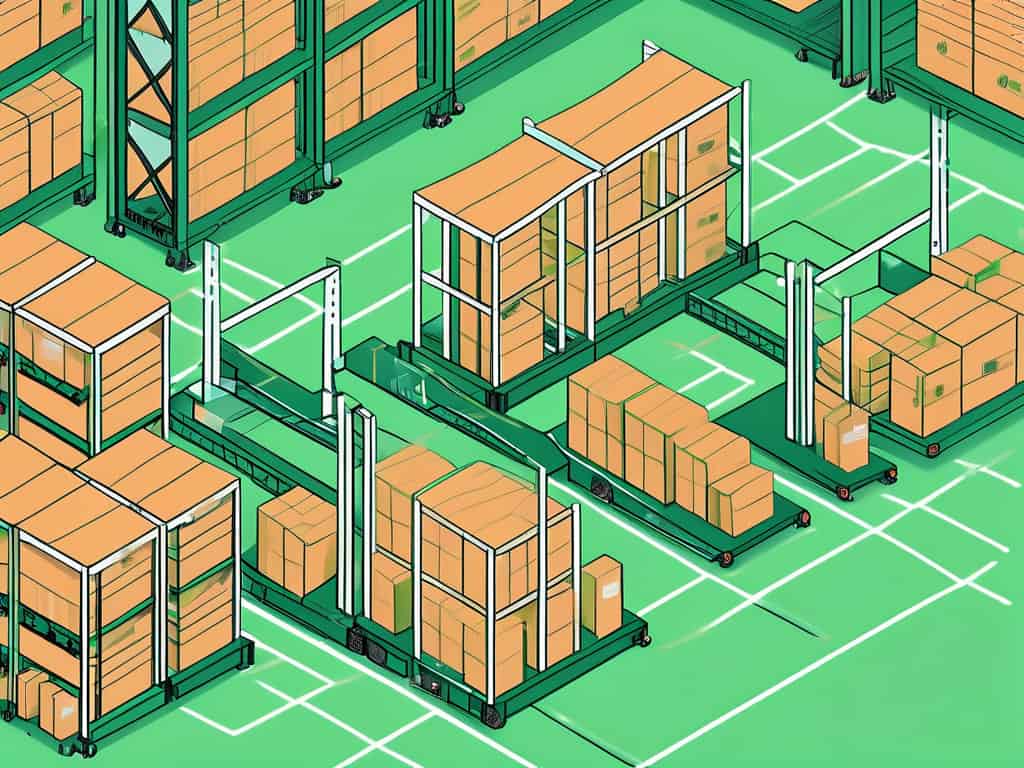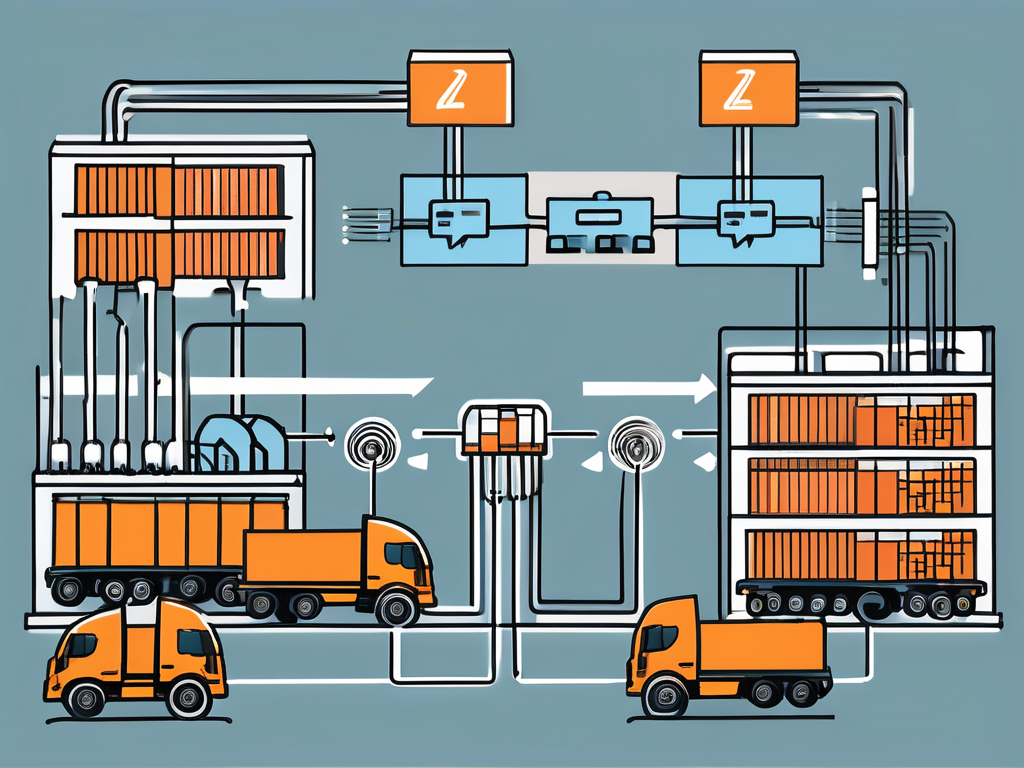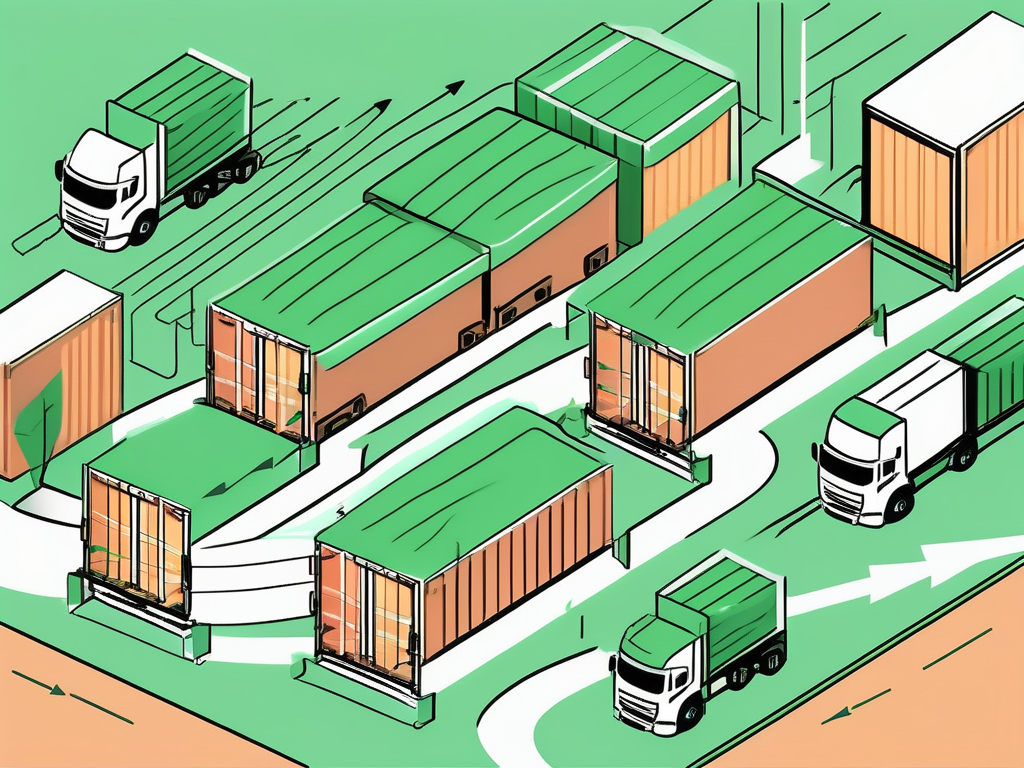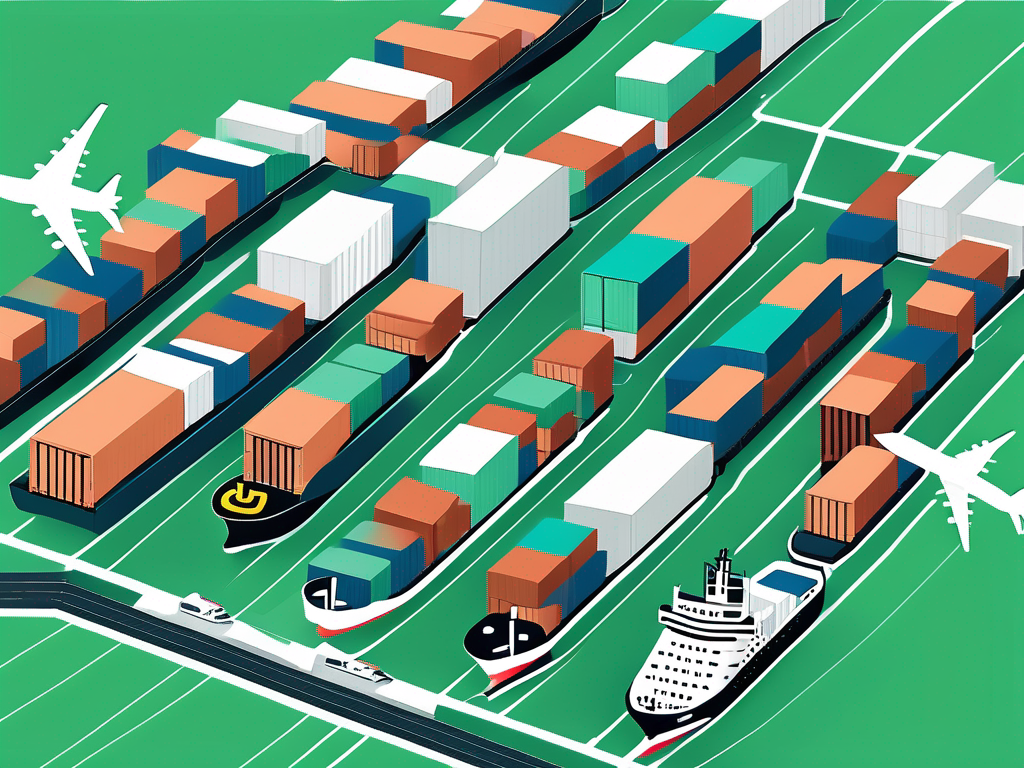Share this
3PL vs. Freight Forwarder: What's the Difference?
by Shipfusion Team on Oct. 21, 2024

The comparison of a 3PL vs. freight forwarder is by no means potay-to potah-to. For ecommerce businesses navigating complex supply chains, the distinctions between these types of logistics providers can make or break the viability of outsourcing altogether. In this article, we explain how options differ in everything from service scope to cost to efficiency so you know which solution is best suited for your business’ unique needs.
What Is a 3PL?
A third-party logistics (3PL) provider is an external service that manages logistics functions for businesses. They take care of the complete supply chain, which includes storing inventory, managing orders, and sometimes even final delivery to customers. 3PLs can also integrate technology to provide real-time tracking and management of products throughout the shipping process.
Many companies choose to partner with a 3PL to enhance efficiency and scalability. For example, a small eCommerce business can leverage a 3PL’s warehousing capabilities, allowing them to provide faster shipping without investing in their own facilities. This partnership enables businesses to focus on core competencies while leaving logistics tasks to experts.
Additionally, a variety of technology solutions are often integrated within a 3PL’s services. These tools can help businesses manage their inventory better, optimize shipping routes, and analyze shipping data over time. The ability to access detailed analytics may contribute to making more informed decisions regarding inventory levels and shipping strategies.
Furthermore, 3PLs can offer value-added services such as packaging, kitting, and assembly, which can be crucial for businesses looking to enhance their product offerings without significantly increasing operational complexity. By utilizing these services, companies can not only save time but also ensure that their products are presented in the best possible manner to customers, thereby improving overall customer satisfaction.
What Is a Freight Forwarder?
A freight forwarder is a company or an individual that specializes in the logistics of moving goods. They function as intermediaries between shippers and carriers, arranging the transportation of products. By doing so, they handle critical components such as negotiating shipping rates and ensuring compliance with shipping regulations.
One example of a freight forwarder’s role is managing international shipments. They are knowledgeable about the regulations and paperwork associated with customs and can advise shippers on best practices. For instance, a business looking to ship goods overseas may rely on a freight forwarder to ensure that all necessary documentation is in order, minimizing delays and potential fees.
Freight forwarders also provide expertise in packing and organizing shipments to safeguard against damage during transit. This service can be invaluable in maintaining product quality. By assessing the specific requirements of each shipment, they can determine the most suitable transportation method, whether it involves air, sea, or ground transport.
Moreover, freight forwarders often have established relationships with various carriers, which can lead to better rates and more reliable service. This network can be particularly beneficial during peak shipping seasons when capacity may be limited. By leveraging these relationships, freight forwarders can secure the best options for their clients, ensuring timely delivery and cost efficiency, which is crucial for maintaining competitive advantage in today’s fast-paced market.
3PL vs. Freight Forwarder: How They're Different
While both 3PLs and freight forwarders facilitate the distribution of goods, the fundamental difference lies in their range of services. A 3PL offers a broader spectrum of logistics support, whereas a freight forwarder focuses primarily on the movement of goods.
To illustrate this further, consider a retailer that requires storage for its products, management of shipping orders, and tracking of inventory levels. In this instance, a 3PL would be ideal, handling every aspect of the supply chain from storage to final delivery. The retailer benefits from an integrated solution that simplifies operations and improves efficiency.
Additionally, 3PLs often utilize advanced technology to provide real-time tracking and analytics, allowing businesses to make informed decisions based on accurate data. This level of insight can significantly enhance inventory management and customer service, as retailers can provide their customers with up-to-date information regarding order status and delivery timelines.
On the other hand, if the same retailer only needs to ship products to various locations, a freight forwarder would be more appropriate. The freight forwarder would manage logistics for the transportation aspect, while the retailer could take care of warehousing and order management internally or through a different provider.
Freight forwarders also have established relationships with various carriers, which can lead to better rates and more flexible shipping options. This can be particularly beneficial for businesses that experience fluctuating shipping volumes or seasonal spikes in demand, as they can adjust their logistics strategies accordingly without the need for long-term commitments.
This distinction affects costs as well. A retailer may find that working with a freight forwarder is more economical for shipping if they are not seeking broader logistics support. Conversely, a business looking for comprehensive end-to-end logistics may find that a 3PL is a more suitable investment for their growth strategy. Moreover, the potential for reduced shipping times and improved delivery reliability with a 3PL can translate into higher customer satisfaction and repeat business, which is invaluable in today’s competitive eCommerce landscape.
Is a 3PL or freight Forwarder Better for Your Ecommerce Business?
Deciding between using a 3PL or a freight forwarder involves assessing the unique needs of your business. Both options can enhance efficiency in transporting goods, but there are important considerations that can help you determine the best fit.
Size of Business
For smaller businesses with limited shipping needs, a freight forwarder may suffice. Larger enterprises, especially those with diverse product lines and a need for comprehensive logistics services, will benefit more from a 3PL. As businesses grow, their logistics needs can become more complex, requiring the scalability that a 3PL can provide.
Simplicity vs. Complexity
If your operations are straightforward and focused mainly on shipping, opting for a freight forwarder may be adequate. When dealing with multiple logistics challenges, a 3PL provides a complete solution. This includes not just transportation, but also value-added services such as packaging, assembly, and returns management, which can be crucial for maintaining customer satisfaction.
Cost Considerations
Review your budget and logistics expenses. A freight forwarder often presents lower variable costs for transportation. In contrast, a 3PL may require a more significant investment upfront but can lead to savings in the long term through efficiency. Furthermore, the ability to consolidate shipments and optimize routes can result in lower overall logistics costs, making a 3PL a cost-effective option for many businesses.
Your specific requirements can guide your choice. Analyzing your shipping volume, storage needs, and desired level of involvement in logistics can provide clarity. For instance, if fulfilling orders from various locations seamlessly is essential for establishing market presence, a 3PL will likely offer the comprehensive support needed. Additionally, businesses that operate in multiple regions may find that a 3PL can navigate the complexities of international shipping regulations and customs clearance more effectively than a freight forwarder.
You Don't Have to Choose Between a 3PL vs. Freight Forwarder with Shipfusion
The right choice between a 3PL vs. freight forwarder will depend on your specific strategic goals, operational needs, and budgetary constraints. Carefully consider each factor to land on an arrangement that lasts.
Shipfusion’s specially-tailored solutions are ideal for ecommerce businesses that sell everything from cosmetics products to consumer packaged goods. Our system is built to scale, meaning fulfillment operations can and will grow with you over time. The possibilities are made even broader by freight forwarding services. Shipfusion clients have access to a dedicated portal capable of quoting and booking freight transportation in real-time. Every tool and type of expertise you could ever need is under one roof.
Take the next step in taking your logistics to the next level by contacting us today.
Share this
You May Also Like
These Related Articles

2PL vs 3PL: Which Is Better for DTC Ecommerce?

Essential 3PL Requirements for Ecommerce Businesses

3PL Brokerage Services: The Solution You Didn't Know You Needed
- April 2025 (23)
- March 2025 (26)
- February 2025 (26)
- January 2025 (37)
- December 2024 (16)
- November 2024 (23)
- October 2024 (22)
- September 2024 (27)
- August 2024 (9)
- July 2024 (8)
- June 2024 (5)
- May 2024 (8)
- April 2024 (8)
- March 2024 (6)
- February 2024 (6)
- January 2024 (5)
- December 2023 (3)
- November 2023 (3)
- October 2023 (5)
- September 2023 (4)
- August 2023 (2)
- July 2023 (1)
- June 2023 (4)
- March 2023 (2)
- October 2022 (1)
- September 2022 (5)
- August 2022 (4)
- July 2022 (7)
- June 2022 (4)
- May 2022 (4)
- April 2022 (6)
- March 2022 (2)
- February 2022 (1)
- January 2022 (3)
- December 2021 (2)
- November 2021 (4)
- October 2021 (2)
- September 2021 (5)
- August 2021 (4)
- July 2021 (4)
- June 2021 (3)
- May 2021 (2)
- April 2021 (3)
- March 2021 (3)
- February 2021 (3)
- January 2021 (2)
- December 2020 (4)
- November 2020 (2)
- October 2020 (4)
- September 2020 (2)
- July 2020 (5)
- June 2020 (4)
- May 2020 (2)
- April 2020 (2)
- March 2020 (4)
- February 2020 (1)
- December 2019 (1)
- May 2018 (1)
- March 2018 (2)
- February 2018 (3)
- January 2018 (3)
- November 2017 (3)
- July 2017 (4)
- March 2017 (3)
- February 2017 (5)
- January 2017 (3)
- December 2016 (4)
- November 2016 (6)
- October 2016 (6)
- October 2015 (1)
- September 2015 (1)
- June 2015 (3)
- May 2015 (3)
- August 2014 (1)
- July 2014 (1)
- March 2014 (1)
- February 2014 (1)